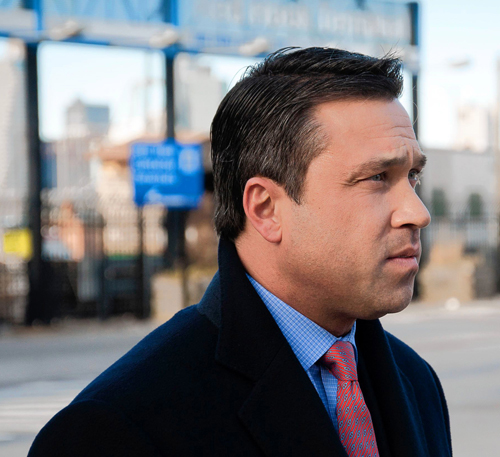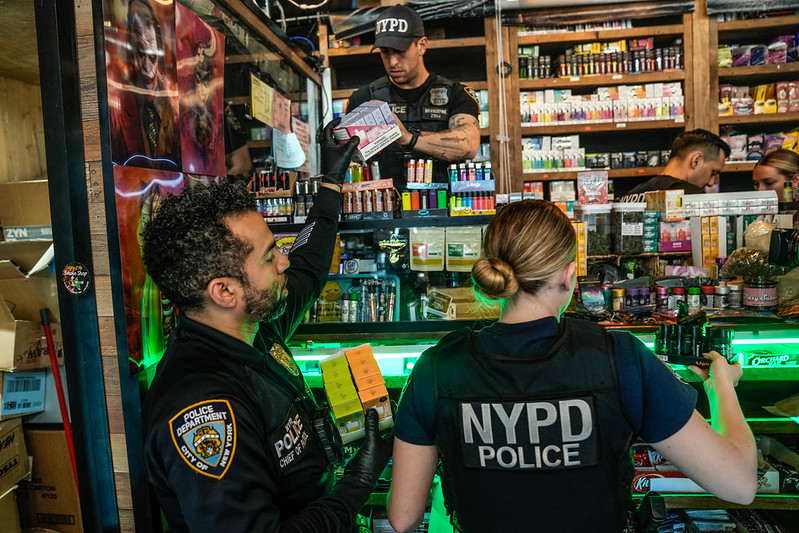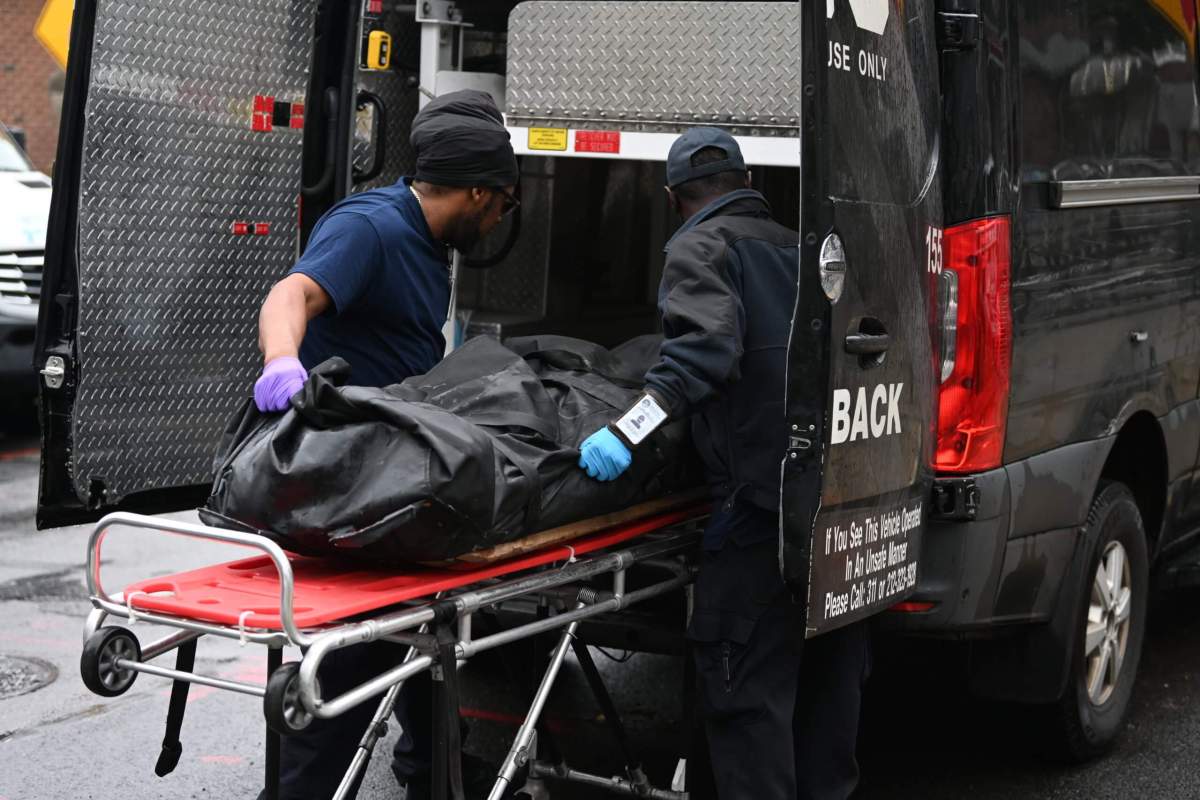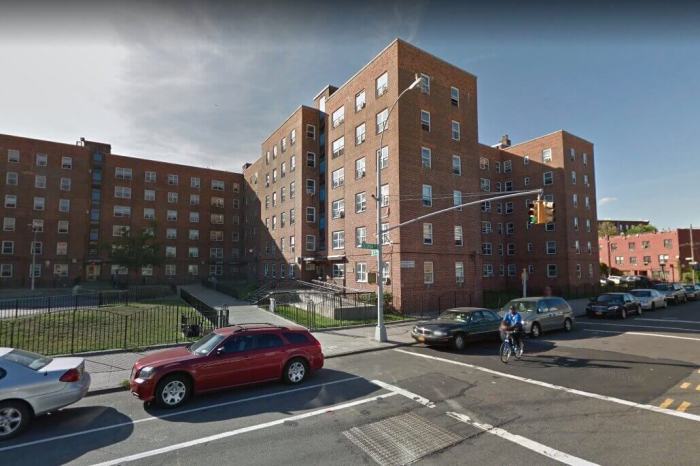The Feds will put another nail in the coffin of Brooklyn’s once-proud shipping industry by sending a team of customs inspectors in Red Hook packing, according to Brooklyn longshoremen who fear government bean counters are speeding the death of their industry.
United States Customs Agents plan to end hand inspections at the Red Hook Container Terminal, a move that will make it more expensive for producers to ship to the borough — putting 700 jobs on the line — say local pols.
“This decision could kill jobs and create a major competitive disadvantage for the Red Hook Terminal,” said Rep. Michael Grimm (R–Bay Ridge).
Under the plan, which could be in effect within a couple of months, shipments requiring hand inspections would be hauled to terminals in either New Jersey or Staten Island. After the cargo is cleared there, it would be shipped to the final destination. But pols and waterfront stakeholders warn that the added time needed could hurt the bottom line of those who ship to Brooklyn.
“It would definite hurt shipping in Red Hook,” said Greg Brayman, vice president of Phoenix Beverages, whose business at the terminal represents about 40 percent of the total shipments into Red Hook and who says that shipments of beer from Latin America fall under extra close scrutiny.
But Customs officials claim that the measure would speed up the inspections process — and save money.
“This move would improve productivity, [and] be cost-effective,” said Anthony Bucci, an agency spokesman.
Each year, Customs officials hand-inspect roughly 3,800 containers at the port — only six percent of the total 59,000 shipments that came into last year, according to the New York Times — though all shipments are scanned, said Bucci.
Bucci said that all shipments would still be inspected in some form in Red Hook, but declined to comment on the potential economic loss for Brooklyn if the plan goes through, and could not say how many customs agents would be reassigned to other ports. He added that not all shipments requiring a hand inspection would need to leave Red Hook, as inspectors could be sent there in a pinch.
The Red Hook port receives 3 million pounds of bananas from Ecuador each week along with the beer, as well as shipments from Saudi Arabia and France.
It’s not the first time in recent months that a government agency as changed operations at the Red Hook port: American Stevedoring, the longtime operator of the terminal, was evicted last year after a contentious legal battle with the Port Authority of New York and New Jersey. The port is now run by Brayman and his father, said Joe Curto, president of the New York Shipping Association.
The agency initially wanted to shut down the inspections on Jan. 6, but postponed its decision for 90 days after pols pressured officials to reconsider the plan.
The decline of the shipping industry in Brooklyn started in the 1970s, when companies started transporting goods in containers instead of the smaller palettes, said Curto. The move allowed larger shipments, but required huge swaths of land to store all the containers.
“Containers need big storage yards. It’s hard to deliver that type of land for storage and operation in Brooklyn,” said Curto, adding that many shippers started unloading in New Jersey, where it was easier to build 350-acre shipping yards. “The cargo went to facilities where the land was.”
The Port Authority has also been trying to move shipping operations to Sunset Park — the head of the agency said in October that the Red Hook space should be abandoned to make room for hotels and other developments.
Reach reporter Dan MacLeod at dmacleod@cnglocal.com or by calling him at (718) 260-4507. You can also follow his Tweets at twitter.com/dsmacleod.























